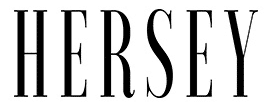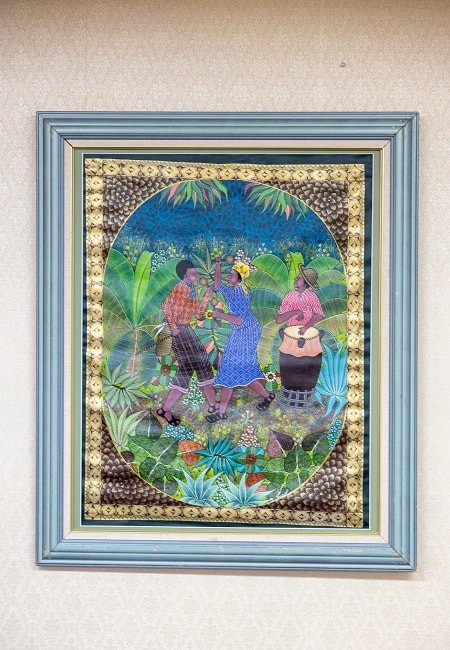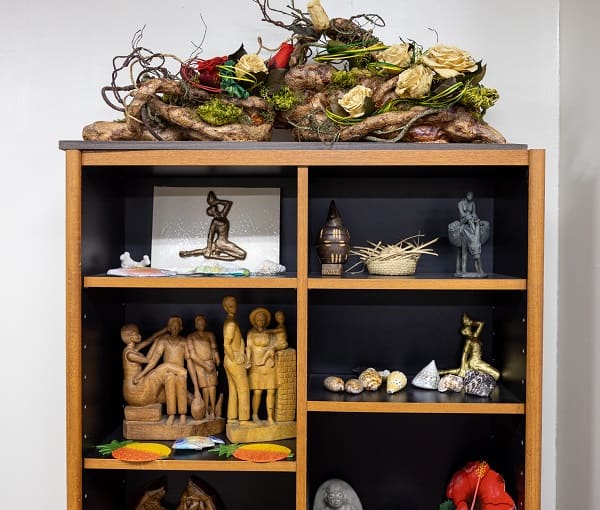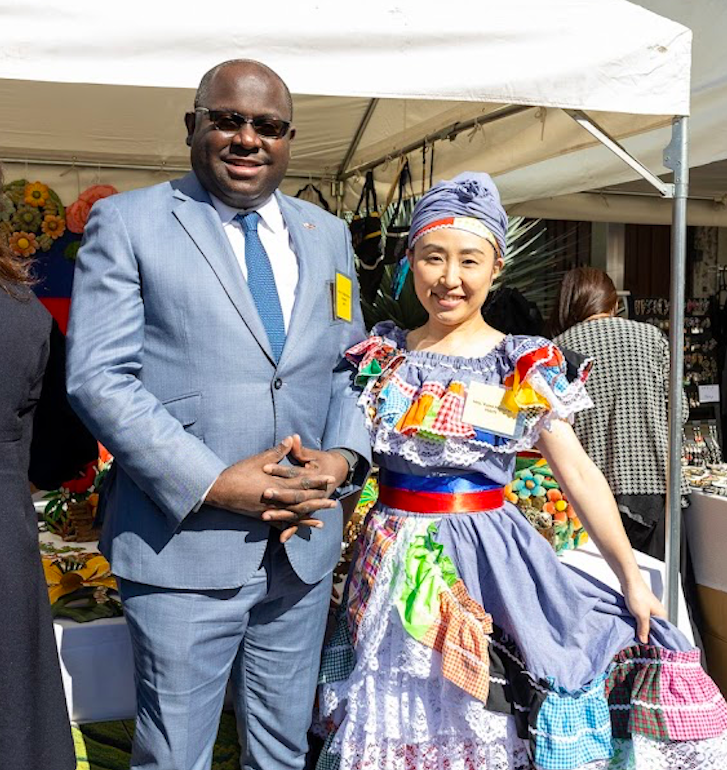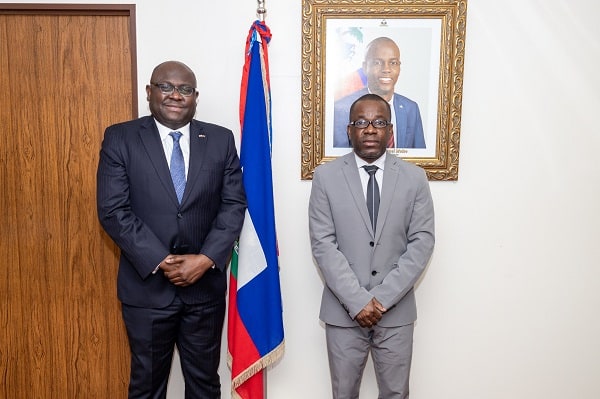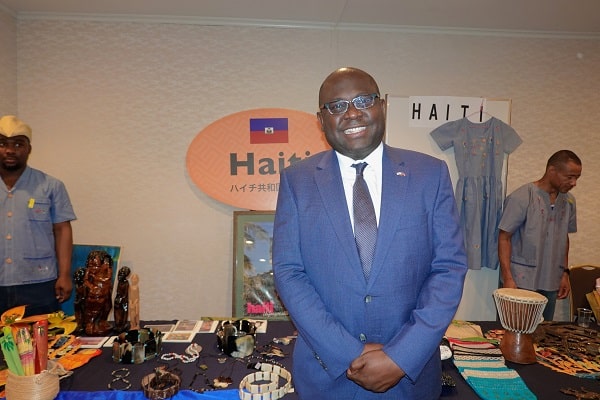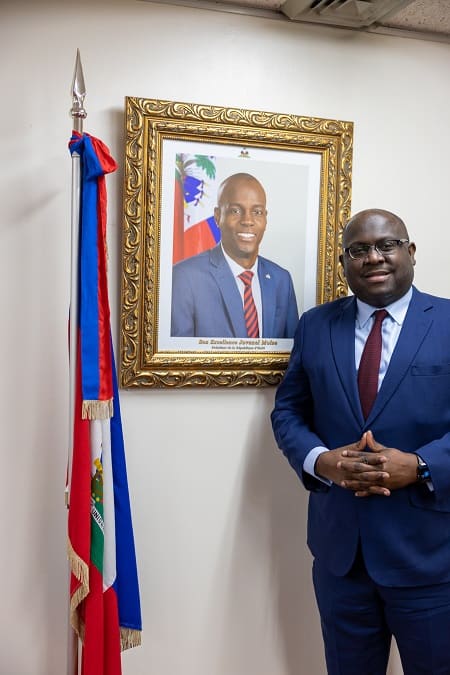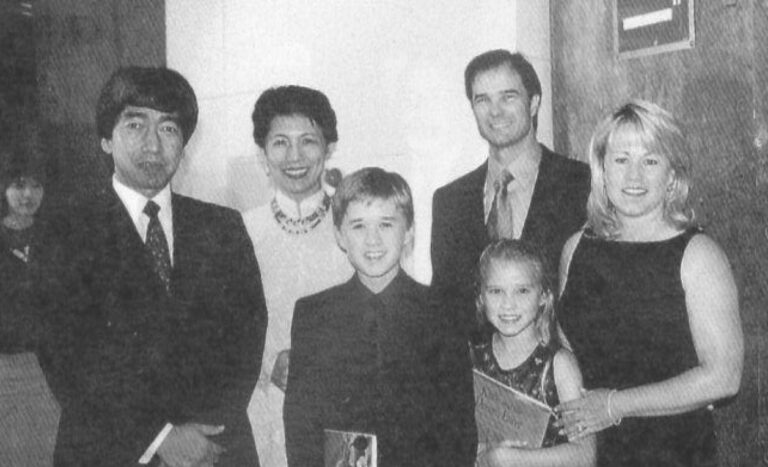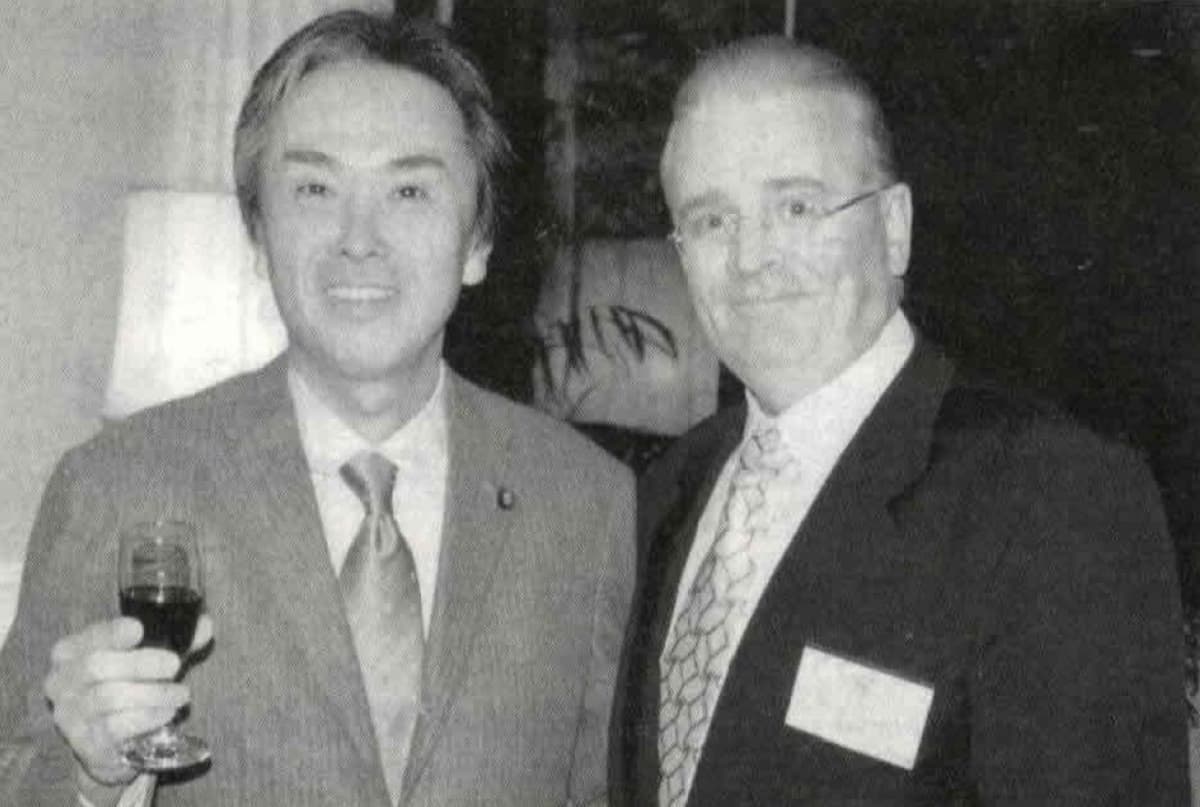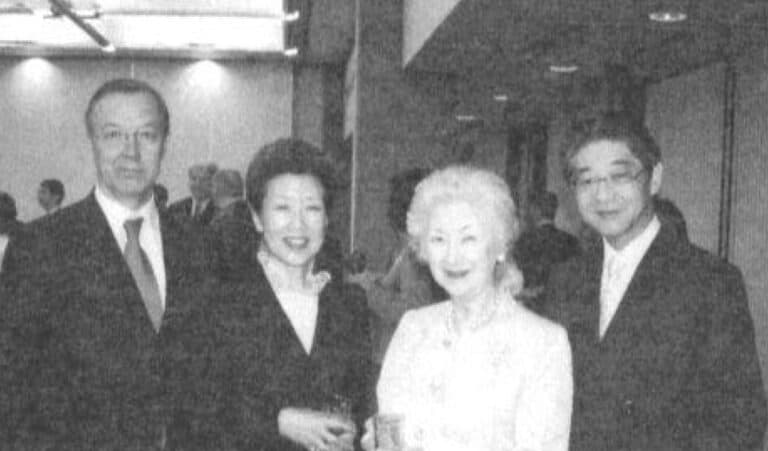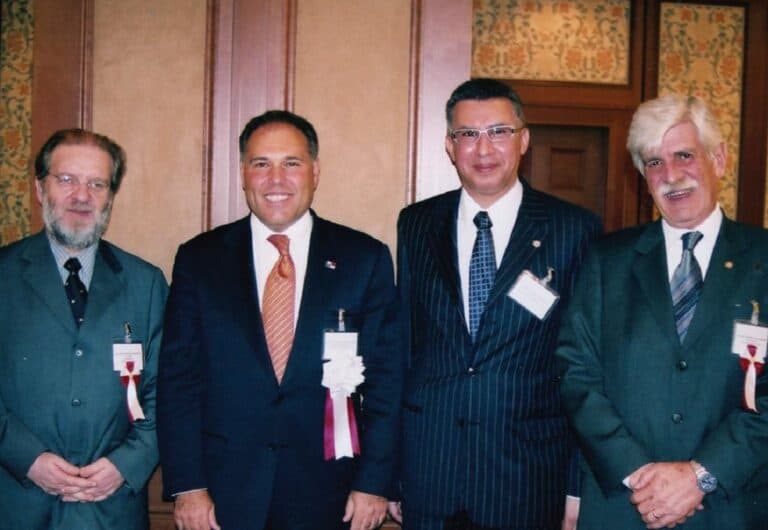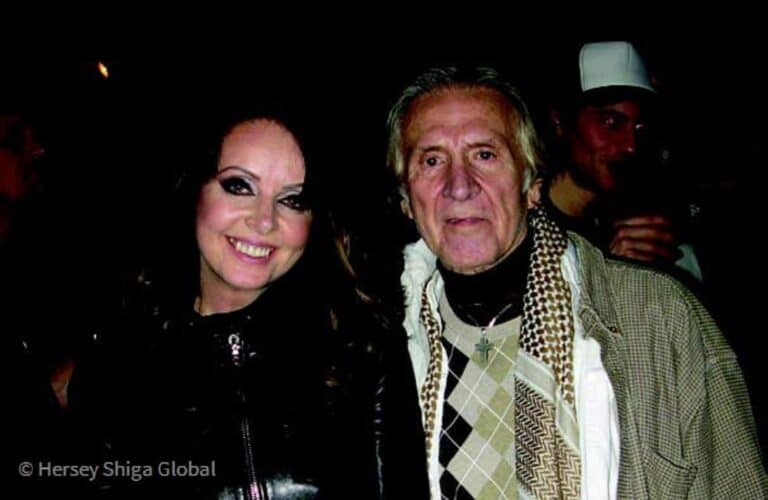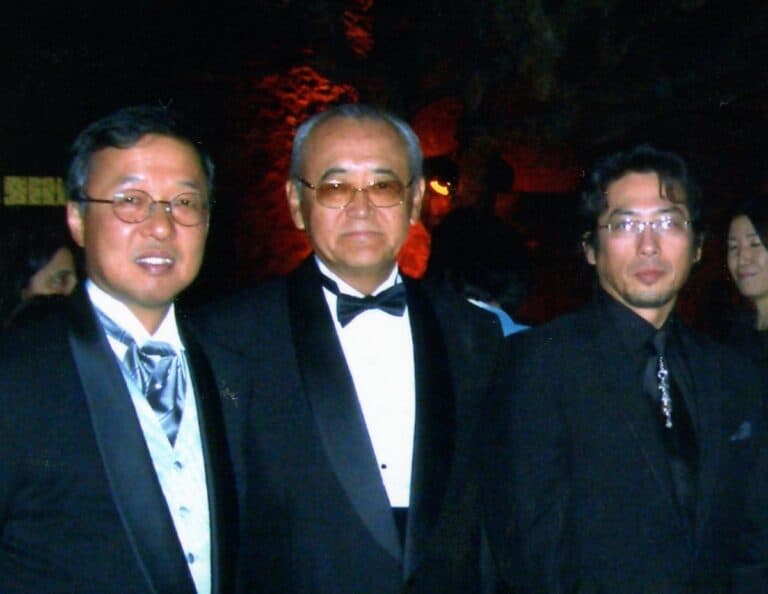Interview with the Ambassador of the Republic of Haiti Helph Monod Honorat
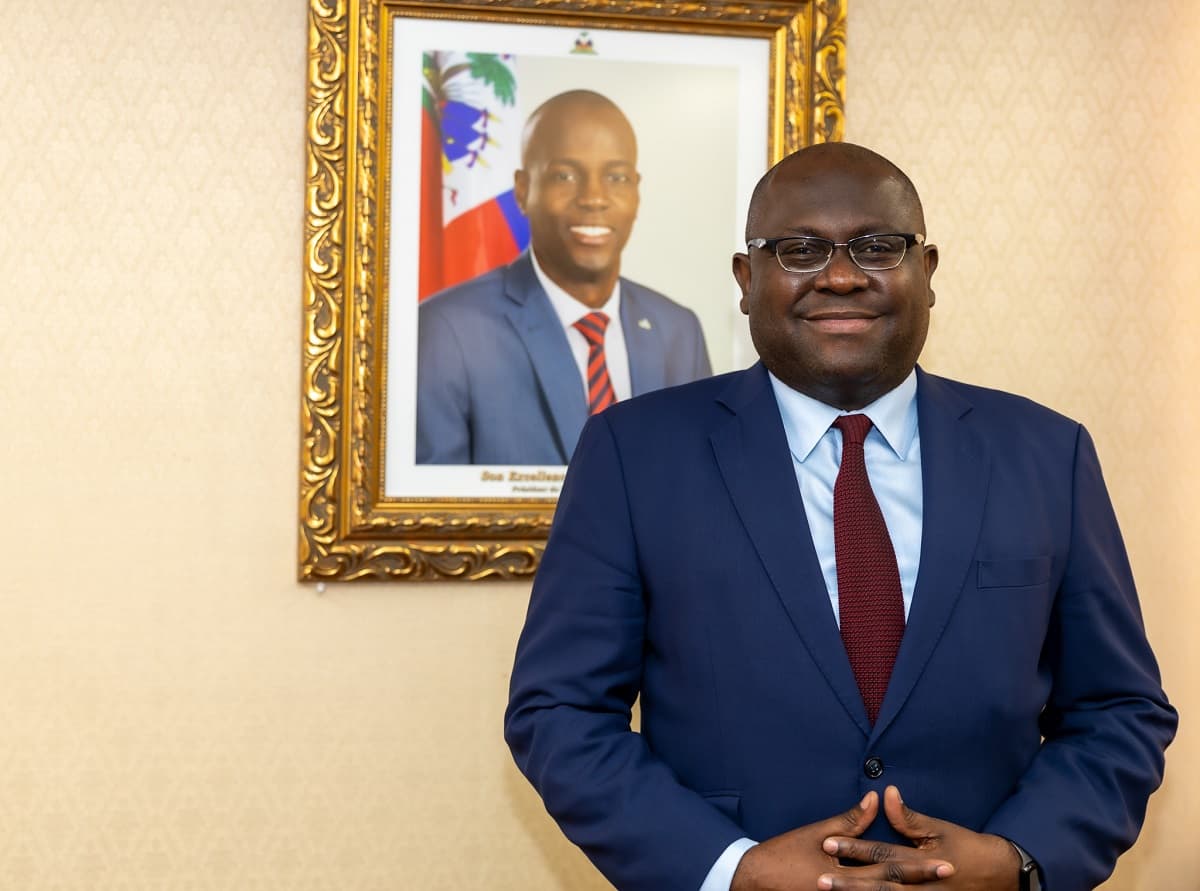
We sat down with Helph Monod Honorat, Ambassador of the Republic of Haiti to Japan, to discuss his career trajectory to becoming the Ambassador, the tenets of the Japan-Haiti relationship, as well as the vibrant Haitian culture the world has come to love.
The discussion further trailed from the trade relationship between the two countries, right up to the bottles of rum lined up in his office. His vision for greater collaboration between the two countries is a great indication of his hopes for genuine friendship and development for Japan and Haiti.
What brought you to Japan?
That’s a big question. Since my early childhood, I have always dreamt of traveling the world to discover new cultures different from mine.
In the case of Japan, I remember that when I was a kid, my father had a VCR at home in the 1990s.It was the Japanese VCR made by Sanyo. I still remember it. When I asked him where it came from, he told me it was from Japan. At that moment, I told myself I would like to visit this country one day.
I presented my credentials to His Majesty the Emperor of Japan on October 7, 2020, as a newly appointed Ambassador Extraordinary and Plenipotentiary, but I was involved with Japan before that. Before that I came to Japan for the first time in 2008 when I was a student. I earned a Ph.D. in economics at Kobe University.
I got a bachelor’s degree in Economics and Statistics at a University in Haiti and a Master’s Master of Research in Economic Policy at the Faculty of Law and Economics of the University of Antilles-Guyane in Martinique. After that, I did my doctoral studies in Japan.
After my studies, I joined the Ministry of Foreign Affairs and started working at the Embassy of Haiti in Japan as 1st Secretary because living in Japan inspired me to build ties between Haiti and Japan. I was given priority because there were no Japan specialists in the Ministry of Foreign Affairs. After working at the Embassy, I went to Canada in 2016 and rounded off my specialization in public policy at the School of Public Policy and Governance of the University of Toronto. I returned to Haiti in 2017 as an Economic Advisor to the late President Jovenel Moise. After, came back to Japan in May 2019 as a Minister-Counsellor. I became Chargé d’Affaires a.i. in June 2020 then became the Ambassador in October 2020.
However, it was when I completed my Master’s degree in Economics, in Martinique, a small island in the Caribbean, that I realized I wanted to contribute to my home country by experiencing and learning from the rest of the world. Having such thoughts in mind, my choice of Japan to pursue my studies was for basically two reasons. The first being its academic qualities and very rich culture and the second, being for the purpose of an adventure different from what I have always known.
I was intrigued by the idea of experiencing a different culture and Asia was a very unknown region for us in Haiti.
DIPLOMATIC RELATIONS
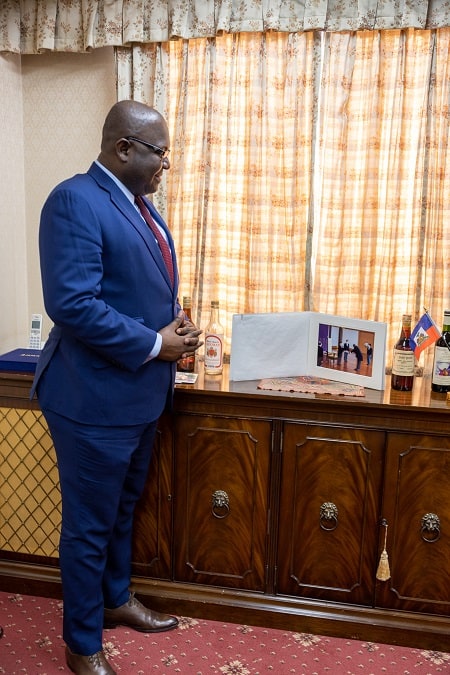
How long has the relationship between Haiti and Japan lasted?
The diplomatic relationship between the two countries started before the 2nd World War, in 1931. This was also when we opened the first consulate in Kobe. As a result, we did not maintain a formal relationship with Japan.
However, we resumed formal relations after the war in 1956 with the opening of an embassy in Tokyo. As a matter of fact, we are one of the few Caribbean countries with an embassy in Japan.
Please tell us about the challenges your country is currently facing and how Japan collaborated with your government.
There is a lot Haiti can learn from Japan, particularly Japan’s ability to recover from wars and disasters.
Back in 2010 when I was still a student here, a large earthquake devastated Haiti, resulting in over 200,000 deaths. I lost some of my friends to this natural disaster as well. More than a year later, an earthquake with an even greater magnitude hit Japan. However, Japan was able to withstand this hit and was well on its way to recovery—the same could not be said for Haiti.
This indicates that Haiti has a major problem with natural disasters, just like Japan, as both Haiti and Japan sit on the boundaries of several tectonic plates. However, we need to find ways to learn from Japan’s resilience to enable us to rebuild and recover after such natural disasters happen. The reality is that Japan is a leading country with earthquake-resistant technology.
We need to learn how to manage earthquakes. After the earthquake that happened this year, the Japanese government, of course, provided great support through the Japan International Cooperation Agency (JICA). They also sent materials to help with rebuilding parts of the country. But I believe there is more we can do.
For one, it would require long-term cooperation in terms of reconstruction, to be able to construct buildings in a new way such that people respect the rules of earthquake-resistant technology.
Therefore, we are looking to develop cooperation with the Japanese government by sending Haitian engineers to Japan to learn more about their disaster response systems and technology. This way, we can also teach our children what to do when disasters happen. Haitian people are willing to do this, we are just not well-informed. Learning all this from Japan can help us prevent further losses in the future, as these earthquakes are very likely to happen again.
Haiti is not the only country with earthquakes but suffers from regular hurricanes, too.
Exactly. And these occur almost every year. By now, both the people and the Haitian government should have built awareness and developed the appropriate response mechanism for such disasters. For example, recently, the government of Haiti is implementing various measures to improve the seismic resistance of buildings. Part of this is our attempt to learn about Japan’s anti-earthquake design and earthquake-proof construction materials. Of course, Japan has appealing technologies, but I think the spirit of the Japanese people is even more wonderful. Regular Japanese people all have pride and future visions. They also have great fortitude and a mentality to rebuild after natural disasters. I hope that Haitians can have a similar spirit and that this will contribute to our national development.
Haitians need to be educated on the best locations to build houses and what to do when a disaster happens. These are just some examples of what I believe we need to learn from Japan.
What was the support you got from Japan?
At the time of the earthquake, the Japanese Red Cross helped to raise money for Haiti in close collaboration with the international Red Cross Organization. The Japanese government also provided support for the education system in Haiti by financing the reconstruction of schools since the 2010 earthquake.
Furthermore, we are beneficiaries of the Official Development Assistance (ODA) granted by the Japanese government. When the pandemic started last year, we also received a lot of support such as financing for the acquisition of medical equipment. These are all important contributions by Japan to support Haiti.
Tell us about other important ongoing collaborations between the two countries.
We wish there will be an increase in the number of scholarships issued by JICA and *Monbukagakusho Scholarship[1] for higher education. Scholarships are also effective tools in promoting and enhancing Japan’s soft power, investing in future leaders, providing access and equity, and increasing research excellence in Haiti’s academic institutions. For example, I was a previous recipient of the Monbukagakusho Scholarship when I came here in 2008. I am a living testimony about how these kinds of programs can solidify a mutual understanding and friendship between the two countries.
In addition, last April, JICA launched a program in Haiti in collaboration with some Haitian universities. The program offers students an opportunity to study in respective academic fields at a Japanese graduate school so that students in Haiti can understand Japan’s society, culture, and development process.
Finally, there’s a training program offered for Haitian diplomats by JICA in conjunction with the Ministry of the Japanese Ministry of Foreign Affairs. This is a nine-month program where participants can stay in Japan, study Japanese and receive diplomatic training. Unfortunately, we did not hold the program in 2020 and 2021 due to the pandemic. But we are hopeful we can resume the program next year.
We would like to outline priority areas for economic cooperation, including technology transfer relating to agriculture, the promotion of regional fisheries, information technology education, and support for the improvement of administrative management capabilities.
Do you have any sister cities in Japan?
No, we don’t. However, since the Tokyo Olympic Games held this year, there was a program called Host Town. Haiti was hosted by a small city in Aichi Ken called Kota-Cho. This was a wonderful experience and now we would like to explore having some sister cities from Haiti and continue this relationship.
TRADE RELATIONS
Tell us about your trade relationships with Japan
Haiti’s main economic sector is Agriculture, with our most important produce for Japan being coffee, cocoa, and mangos.
Coffee has been very popular since the colonial era as Haiti is a mountainous country. Personally, I think Haiti’s coffee is one of the best in the world. Right now, we are trying to extend our cooperation in terms of increasing the production of coffee in Haiti. We are in talks with a Japanese company to increase the sale of Haitian coffee in the Japanese market. Next year, we hope to have more Haitian coffee in Japan. Also, we aim to import Haitian cocoa. Right now, discussions are ongoing with a Japanese company to introduce Haitian cocoa to produce chocolate here.
Of course, tourism is also an important sector for Haiti. Unfortunately, due to the political instability in the country as well as the ongoing pandemic, this sector has suffered. However, is making greater efforts to attract more tourism because Haiti, as a Caribbean Island, has various remarkable beaches and nature reserves. We also have several National Story Parks that tourists can visit and enjoy Haiti to the fullest.
Could you tell us about these bottles lined up in your office?
These are famous rum bottles from Haiti. There are different ages, ranging from 4 to 15-year-old rum, which is, by the way, very good. People all around the world love our rum. As you might be aware, as a former Spanish and then a French colony, our first agricultural produce was sugarcane, which is the main ingredient of rum.
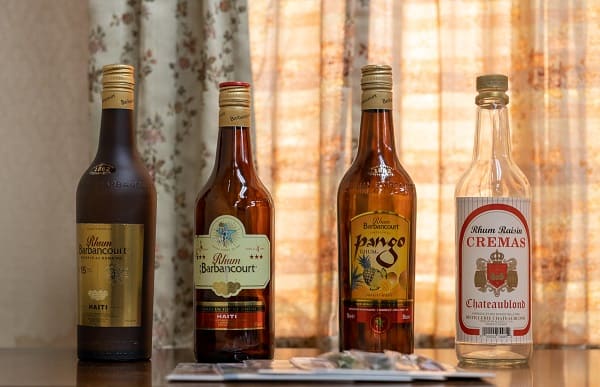
CULTURAL EXCHANGE
Tell us about the cultural aspect of Haiti. Art, music and influential personalities.
Our culture is very rich because it’s a mix of European, African, and Caribbean influences.
Haitian artists often use the realities of Haitian life to get inspired. That’s why they produce some very vibrant and wonderful pieces of art famous all over the world. There’s also a significant religious aspect because there’s a mix of Catholicism and African native spiritual influences.
In their works, Haitian artists also express their love and passion, their patriotism and beliefs, their thoughts on many things in the world. Haitian art in all its forms, whether it is with literature, painting, music, dance, or culinary art, will touch its audience’s soul; and that is because Haitian artists pour their souls into their work.
Haitian art and culture are valuable treasures for us, such as our famous paintings, our love for music and dance, as well as culinary arts. Our embassy usually has various paintings from Haiti. In these paintings, you can feel the Haitian spirit. Right now, you can admire these paintings at an exhibition in Hero.
What are your hopes and vision for the future of Japan-Haitian relations?
My experience as a diplomat has given me a broad understanding of the diplomatic ties that exist between Haiti and Japan. I have come to fully understand the strategic points of Haiti’s bilateral cooperation with Japan, mainly in areas such as education, risk and disaster management and agriculture.
It is without false modesty that I consider myself to be “the right man for this job”. Indeed, with my many years of experience dealing with diplomatic exchanges with Japan, I consider myself capable of fulfilling the wishes of the Haitian Government to see Haitian diplomacy constitute a powerful lever for growth and economic development through cultural, political and economic exchanges.
Having explored almost every country in Asia, I believe that this part of the world, particularly Japan, can turn into a region of opportunity for Haiti. I also believe that it is in the best interest of Haiti to develop a strategic and efficient plan to better position itself for cooperation with countries in this geographic area. My years in Japan have allowed me to identify several types of possible partnerships with this country. For example, Haiti can use the experience of Japan in integrating risk and disaster management into development planning.
In addition, Haiti can also develop a partnership with Japan in the field of maritime fishing which could relate in particular to the technical aspect by contributing to the development of fisheries research in general, but also to training, supervision and restructuring. of the sector. This cooperation in the field of sea fishing should include technical and technological collaboration, also facilitate professional training and scientific research and finally make available the material resources necessary for the development of this sphere of activity in target regions of the country.
Where can our readers learn more about Haiti, trade and Haitian culture?
They can visit the embassy at any time. Also, any commercial group or association that is interested in
Every year, we participate in the Latin-American charity bazaar, where visitors purchase Haitian handy crafts and learn more about our country. Also, every year in July there is a Caribbean festival held in Yoyogi Park, where we have Haitian music, food and more. We look forward to having the festival again next year. Please also visit our website for news and updates.
https://www.facebook.com/haitijapan/
*The Monbukagakusho Scholarship, formerly known as Monbusho Scholarship, is a prestigious academic scholarship offered by the Japanese Ministry of Education, Culture, Sports, Science and Technology.
